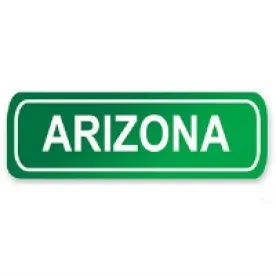The Arizona Court of Appeals, Division One, has ruled that the Arizona State Legislature overstepped its authority in 2016 when it prohibited Arizona cities and other municipalities from enacting their own employee benefits ordinances. The ruling reinstates a portion of a 2006 law that permits Arizona municipalities to pass local ordinances requiring employers to provide employment benefits more favorable than those provided under statewide laws. However, federal law, such as the Employee Retirement Income Security Act of 1974 (ERISA), still imposes limits on how much these local ordinances may compel employers to do.
In November 2016, Arizona voters passed Proposition 206, which quickly raised the Arizona minimum wage to $10 per hour, implemented annual minimum wage increases through 2020 (as well as compulsory cost of living increases each year thereafter), and mandated paid sick leave for employees of all private and municipal employers.
Proposition 206 actually amended an earlier Arizona voter initiative (Proposition 202), which in 2006 created the Arizona Minimum Wage Act (MWA). The MWA not only established a state minimum wage law but also included language that empowered Arizona cities and other municipalities to enact separate minimum wage and employee benefits ordinances more favorable to employees than state law and presumably outside of state control. (“A county, city, or town may by ordinance regulate minimum wages and benefits within its geographic boundaries but may not provide for a minimum wage lower than that prescribed in this article.”)
However, earlier in 2016, the Arizona legislature enacted House Bill (H.B.) 2579, which limited some of what the MWA sought to grant to Arizona municipalities by stating that “[t]he regulation of employee benefits, including nonwage compensation, paid and unpaid leave and other absences, meal breaks and rest periods, is of statewide concern. The regulation of nonwage employee benefits pursuant to this chapter and federal law is not subject to further regulation by a city, town or other political subdivision of this state.” Thus, H.B. 2579 did not limit the power to pass local minimum wage ordinances, but it did directly restrict local regulation of employee benefits.
Almost immediately after H.B. 2579’s enactment, a labor union, city council members from several Arizona cities, and Democratic Party legislators sued the State of Arizona in superior court claiming that the law is unconstitutional because its passage violated Arizona’s Voter Protection Act (VPA). The VPA (the product of yet another voter-initiated referendum) amended the Constitution of the State of Arizona in 1998 to prohibit the legislature from repealing or amending voter-passed initiatives unless the change furthers the purpose of the initiative and passes with at least a three-fourths vote in both the Arizona House of Representatives and Senate. H.B. 2579 did not pass either chamber of the legislature with a three-fourths vote.
On a motion for summary judgment, the superior court ruled that “H.B. 2579 impliedly repealed a portion of the [MWA] and therefore violated the VPA.” The state appealed and Division One of the Arizona Court of Appeals affirmed the lower court’s judgment, concluding, “It is clear from the text [of the MWA] that by granting a county, city or town the ability to ‘regulate minimum wages and benefits,’ the intent of the electorate was to grant these bodies the ability to regulate wages and nonwage benefits.” Unlike other states, such as Florida, which successfully struck down a Miami Beach minimum wage ordinance (despite a Florida state constitutional amendment with a provision similar to that of the MWA), the Arizona legislature’s authority to amend a duly-enacted voter referendum, such as the MWA, is limited by the significant hurdles erected by the VPA.
Whether the legislature’s definition of “nonwage benefits” will survive after other parts of H.B. 2579 were found unconstitutional remains to be seen, but for now the legislative legacy leaves us with a broad spectrum of potential non-wage benefits that local governments are free to legislate, including “fringe benefits, welfare benefits, child or adult care plans, sick pay, vacation pay, severance pay, commissions, bonuses, retirement plan or pension contributions, other employment benefits provided in [the Family and Medical Leave Act] and other amounts promised to the employee that are more than the minimum compensation due an employee by reason of employment.”
Unless the Arizona Supreme Court reverses or limits the scope of the court of appeals’ decision (something not predictable in light of the VPA’s strict constitutional restraints), Arizona municipalities will be free (again) to enact ordinances that may be more “employee friendly” than other applicable statewide laws. However, this week’s decision does not necessarily mean that Arizona municipalities can mandate employers to provide a wide array of employee benefits. In the private sector, most plans providing non-cash benefits are governed exclusively by a federal law, ERISA. An ordinance mandating the establishment of a typical benefit plan likely would be preempted by ERISA. Thus, the uncertainty regarding which employee benefits local governments in Arizona can mandate employers to deliver is far from resolved.




 />i
/>i

